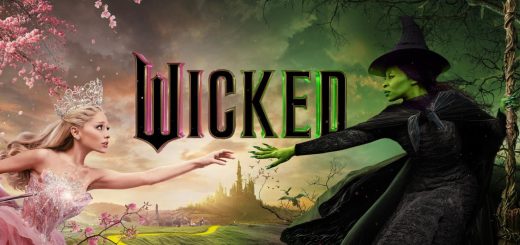Beetlejuice. Beetlejuice. Be…..HOLD!
The newest national tour to take the stage in Chicago is “Beetlejuice: The Musical. The Musical. The Musical.” The perpetually wacky show never ceases to amaze with its electric colors and catchy songs. Hidden beneath its hilarity, the show also discusses some more serious topics, leaving viewers with a poignant message that will stay with them even longer than their smiles and split sides.
BACKGROUND
“Beetlejuice” is a musical with music and lyrics by Eddie Perfect and a book by Scott Brown and Anthony King. It is based on the 1988 film of the same name. The show kicks off with a young girl, Lydia Deetz (Isabella Esler), at her mother’s funeral, but quickly descends into chaos as Beetlejuice (Justin Collette), the titular character (named after the star Betelgeuse), hijacks the show and introduces himself to the audience as a devious demon who wants to rid himself of a curse that makes him invisible to the living. He calls upon a recently deceased couple, Barbara and Adam Maitland (Megan McGinnis and Will Burton) to be his bridge to the world of the living as they try to win back their home from its new inhabitants–one of whom is Lydia, who is still dealing with her mother’s death in addition to her neglectful father and his new girlfriend.
“Beetlejuice” premiered on Broadway at the Winter Garden Theatre in the spring of 2019, but was forced to close several months early in March of 2020 due to the COVID-19 pandemic. The production reopened at the Marquis Theatre on April 8, 2022, with many actors returning to their original roles. The show then began its US national tour in Kentucky on December 1, 2022, and is now in Chicago at the Auditorium Theater from November 6-19, 2023.
ARTISTIC STYLE
Beyond the engaging plot, the show is strengthened by the ghostly artistic style of the show. The showrunners aimed to maintain as much of the Tim Burton-style from the original movie. In the movie, Burton, as the director, infused the dark, macabre elements that make his work so distinct. In order to replicate that the production and scenic designer David Korins, who was nominated for Tony for the set design of “Beetlejuice” in 2019, drew inspiration from some of Burton’s works beyond “Beetlejuice” such as “The Nightmare Before Christmas” and “The Corpse Bride.”
One way that the set achieves a more dramatic Burton-inspired look is through building and painting the set pieces with forced perspective, meaning the dimensions of the house are stretched in order to give the space more depth and character. Not only does this help the house to feel more like the real interior of a house, but it also brings the building to life, giving it an eerie quality that allows it to blend right in with the plot of the show. Also, during the numerous scene transitions, a curtain is brought down in front of the set, and images are projected on them. These projections were made to look like paintings with thin curving trees and a large glowing moon made up of long, sweeping brush strokes. Maintaining the Burton style was also aided by the fact that, much like many of Burton’s works, this show is unavoidably “a show about death.“
THEMES
Beneath its flashy colors and raunchy humor is the heart-wrenching story of Lydia Deetz, who is deep in mourning for her mother. Her father, Charles (Jesse Sharp), refuses to talk about her, despite Lydia’s near-constant attempts. As Lydia is suffering out in the open, desperate for someone to talk to in order to make her less lonely, her father is suffering internally. He does everything he can to try to pick up and move on because he doesn’t know how to deal with his wife’s death. He begins a relationship with Delia (Kate Marilley) in the hopes that she can bring some light to Lydia’s life and fill the void in their family. However, since neither Lydia nor Charles fully understands how the other feels, they are left isolated from one another. Beetlejuice takes advantage of this, knowing what it is like to feel so alone since he cannot communicate with living people. He tries to get Lydia to be more like him and leave her father behind. Yet, Lydia refuses. She tries to find her own way, and even after she goes to Beetlejuice for help, she ultimately decides to go with her father once she realizes how far he is willing to go to save her.
The moments of heartfelt sentiment expressed by exuberant characters like Beetlejuice, though often played for laughs, sober the audience to the reality that anyone, even a demon, can feel lonely. The mirrored experiences of Beetlejuice and Lydia teach us that beyond the facades that we put up in our day-to-day lives, we are all mourning something. For some, it’s the loss of a life; for others, it’s the loss of something physical, or even the loss of one’s self. In order to keep ourselves afloat, it is necessary to acknowledge our own struggles as well as the struggles of others, just like Lydia and Charles do by the end of the story as they are honest with one another about how much they both miss Lydia’s mother.
CONCLUSION
The hardly subtle show somehow manages to illustrate a great deal of nuance. The plot and artistic style make the show a joy to watch, enhancing the hilarity and bringing depth to the otherworldly feeling of the show. If you can’t make it to the show within the next week, don’t fear–it was recently announced that the tour production will return to Chicago at the Nederlander Theatre from May 21-26 in 2024.




Recent Comments